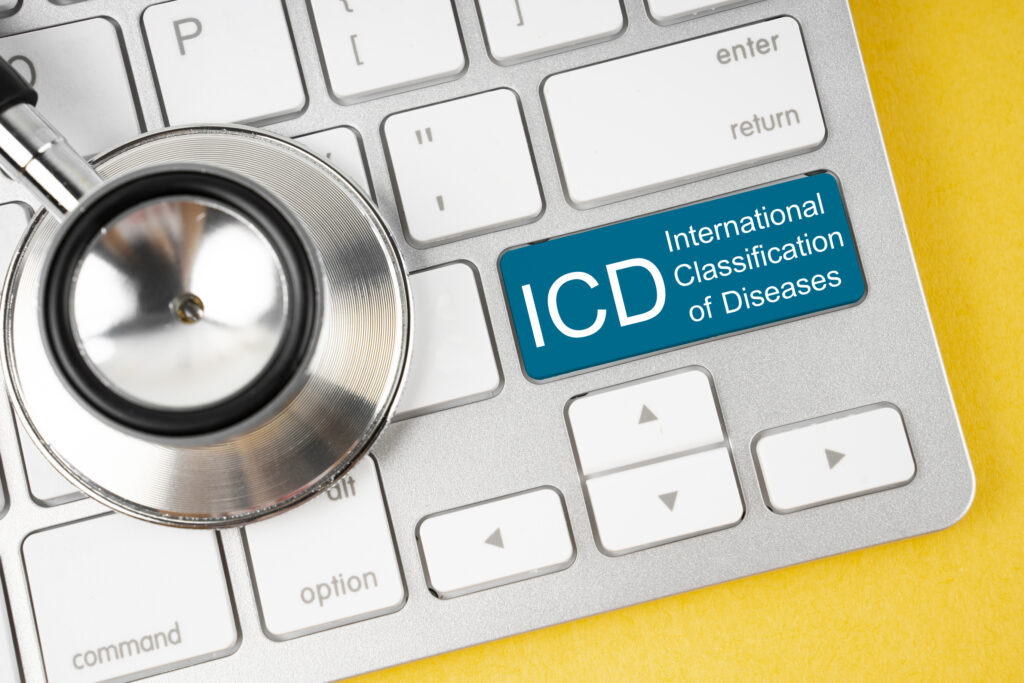Boston MedTech Advisors Blog, January 2024
The International Classification of Diseases (ICD) developed by the World Health Organization (WHO) is the standard reporting system of health conditions. The U.S. currently uses the International Classification of Diseases, tenth version (ICD-10) for reporting the underlining medical conditions on all claims for reimbursement.
The WHO has developed a new revision – ICD-11, which will gradually replace the 25-year-old ICD-10. The ICD-11 includes considerable updates that will affect all medical documentation and billing processes, including:
- Greater codes specificity, allowing more refined tracking of health conditions.
- Introducing changes to the classification of mental health disorders, adding several mental, behavioral, and neurodevelopmental conditions.1

While the WHO started reporting health statistics using the ICD-11 in 2022, global implementation of the new revision of the ICD codes will be a gradual process. The transition to ICD-11 in the U.S. will involve coordination between the Centers for Disease Control and Prevention (CDC) and other health agencies. The National Committee on Vital and Health Statistics (NCVHS) is assessing how the ICD-11 can be best used to meet the needs of healthcare agencies and providers and determining appropriate implementation methodologies, including crosswalk mapping of existing ICD-10 codes to the corresponding new codes, and the automation of ICD-11 coding to reduce the burden on medical documentation and coding personnel.2
It is estimated that the transition to the ICD-11 will be fully implemented in the U.S. by 2028.3 All healthcare stakeholders, including providers, using these codes in their reimbursement claims to insurance companies will be highly impacted by the changes, and thus, it is important for medical device and life science companies to stay abreast of the ICD-11 changes so they can modify guidance provided to their customers.

About Boston MedTech Advisors (BMTA)
Since 2004, BMTA’s multidisciplinary team has supported more than 400 medical technologies and life sciences companies around the world to achieve their business goals. BMTA assists its clients to commercialize new products and services and increase their market adoption by addressing their unique and inter-dependent regulatory, clinical evidence, reimbursement, and marketing requirements and strategies. BMTA offers result-oriented insights that recognize the multi-faceted aspects of today’s healthcare markets and the client’s unique business needs.
For more information, questions, or comments, contact us at info@bmtadvisors.com
Follow us on LinkedIn.
References:
- Gaebel W et al. Changes from ICD-10 to ICD-11 and future directions in psychiatric classification. Dialogues Clin Neurosci. 2020; 22(1):7-15.
- NCVHS. ICD-11 Overview: Key Facts, History, and References. 2023. https://ncvhs.hhs.gov/wp-content/uploads/2023/09/ICD-11-Overview-September-2023-508.pdf
- Feinstein JA et al. Preparing for the International Classification of Diseases, 11th Revision (ICD-11) in the US Health Care System. JAMA Health Forum. 2023; 4(7):e232253.
Photo 274860994 © Penchan Pumila | Dreamstime.com

